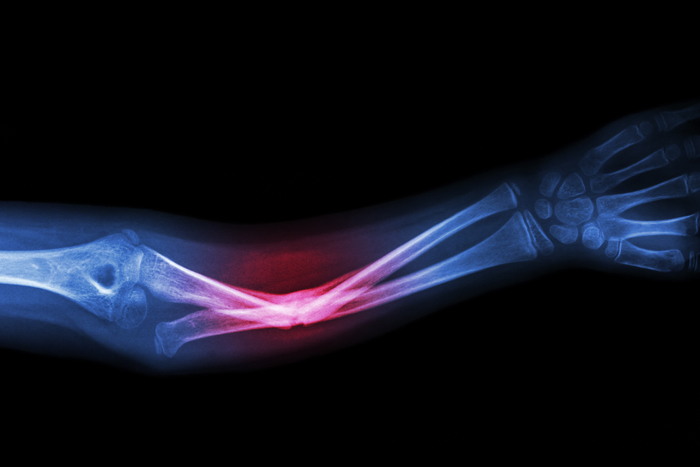Management of Open Fractures Treatment in MRC Nagar, Chennai
Arthroscopy is a less traumatic surgery than open surgeries and provides faster healing. But the type of surgery orthopedic surgeons prescribe depends on the severity of the injury as arthroscopy is not suited for all severe wounds. For severe injuries like open fractures, open surgeries are generally recommended.
What is an open fracture?
An open fracture, also known as the compound fracture, is a force-induced injury in which the skin around the site of the broken bone is torn apart. It damages the soft tissues around the bones, muscles, veins, etc.

What causes an open Fracture?
An open fracture can be caused by a gunshot or falling from a height or road accident. An acute or low-force trauma also falls under open fracture if the wound is open and a bone is protruding.
How is an open fracture diagnosed?
- At first, a surgeon checks for any injuries other than orthopedic injuries and asks for the patient’s medical history.
- After stabilizing the patient, orthopedic injuries are examined to check the damage of tissues, nerves and circulation.
- An X-Ray is done after the physical examination to check if there is any dislocation or how many bones are broken.
When do you need to see a doctor?
The need for examination depends upon the type of fracture. Some fractures might not need urgent medical care as others. But if a bone is visible and a limb is misplaced, contact an ortho physician near you instantly.
Request an appointment at Apollo Spectra Hospital, MRC Nagar, Chennai.
Call 1860 500 2244 to book an appointment.
How is an open fracture treated or managed?
Immediate surgery is the best way to get all your wounds cleaned up before the infection starts spreading.
The doctor starts with wound debridement to stop the infection from spreading. He/she removes all the other contaminated things, including damaged tissues, from the wound as part of debridement. The doctor then progresses with wound irrigation, during which he/she washes the injury with a saline solution.
There are two types of surgeries through which open fractures are managed.
- Internal Fixation
Internal fixation is a method by which bones are reconnected with the help of rods, wires, plates, etc. - External Fixation
External fixation is chosen when it is not possible to do internal fixation. In this case, the rods inserted in the bones exit and are then attached to a stabilizing structure outside the body.
What are the surgery risks?
- Infection: Bacteria can enter the injury during the healing process. It can become a chronic infection if not taken care of on time, leading to other surgeries.
- Compartment syndrome: Arms or legs start to swell, building pressure on the muscles to cause severe pain in the wound. If not operated in time, it can lead to loss of mobility in joints.
How do you recover after the surgery?
- Open fractures heal gradually. The pain, stiffness, weakness, etc., may take several months to go away if multiple bones are broken.
- During this period, an ortho specialist near you can suggest activities you can resume depending upon the type and severity of the fracture, and how fast the wound heals.
Conclusion
Open surgeries are painful. But timely medical attention, proper rest and medication can help you heal quickly. Also, with the advancing technology, specialists are researching to tackle open fractures with new approaches that are less painful.
Exercising is crucial after the surgery for strengthening muscles and attaining movement and flexibility in joints. You can take help from physiotherapists in Chennai for the same.
We cannot prevent fractures, but we can prevent excessive damage by making our bones strong. Regular intake of vitamin D, calcium, exercising and a healthy diet can help.
Usually, most of the fractures are immobilized as it helps to heal faster. But if the bone is intact, you may not need a cast.
Symptoms
Our Top Specialities
NOTICE BOARD
CONTACT US
CONTACT US
 Book Appointment
Book Appointment


.svg)
.svg)
.svg)
.svg)








